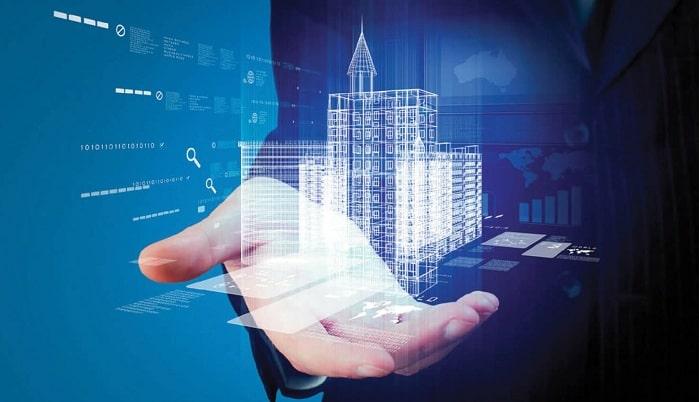The coronavirus, also known as COVID-19, started in late December 2019 in Wuhan, China, which slowly spread globally across 216 countries, shifting major paradigms concerning employees' work and personal lives. The supply chain industry saw major disruptions due to the unprecedented lockdown and unannounced shutting down of manufacturing units. Real Estate businesses faced a decline in sales and revenue during the COVID-19 period. They had to develop digital solutions and build automation and upgrade solutions to create a value proposition for emerging market needs.
The COVID-19 pandemic has positively impacted the global intelligent building automation technologies market due to the rising upgraded home standards to support the work-from-home process. Also, smart home management ensures quarantining, visitor management, installing connected equipment such as smart cameras, and security.
Intelligent buildings with glasses, elevators, thermostats, and refrigerators are becoming exceedingly popular. The demand is rising because of major shifts in patterns like work from home and home office spaces. The work-life integration has further catalyzed the need for hassle-free and comfortable living, thereby increasing the sales of smart homes. Government initiatives to encourage environment-friendly projects like smart home projects and approving loans at lower interest for people incline them to buy such property, which drives the market despite a setback at the pandemic's peak.
For instance,
- In February 2021, the latest version of Metasys building automation system Metasys 11.0 was announced by Johnson Controls with improved cybersecurity capabilities and better system performance
- In September 2021, Schneider Electric India Private Limited (SEIPL) entered into a white label agreement with BCH Electric Limited to buy unbranded products from the latter and sell it as their own. This arrangement abided by one of the many terms of the CCI approval required by SEIPL to acquire the electrical and automation business of Larsen and Toubro Limited to boost sales and revenue
Impact On Demand
The demand for intelligent home automation systems has increased due to factors such as the demand for luxury residences due to the work from home factor. Initially, the construction and the real estate industries took a major hit due to the laborers migrating to their hometowns and disruption in supply chain management and availability of raw materials. However, with proper hygiene, awareness, and medical assistance meted out to the workers, the construction industry has bounced back, and residential projects thrive. Commercial offices with smart features like intelligent glass, intelligent thermostat, intelligent elevator are likely to see the growth as offices resume and work from home changes to work from office ultimately.
For instance,
- In October 2021, Siemens Smart Infrastructure acquired the French startup Wattsense to expand their building products portfolio by implementing the startups' innovative technological solutions and IoT management systems for small and midsize buildings, which ensures simplicity and interoperability
This pandemic has positively affected the demand, as upgraded smart homes and townships have become popular. Also, building automation systems in commercial buildings are in demand, as offices are planning to gradually shift from work near the office to work from the office.
Impact on Supply Chain
The supply chain crisis has adversely affected the industrial real estate business during the COVID-19. Still, key opinion leaders in the industry believe that the problems have been around even before the pandemic started. The pandemic has resulted in industries facing a bullwhip effect, as demands have been more varied regarding the inefficient supply chain processes. The supply of goods has not been able to meet supply commitments, resulting in demands shooting up, an imbalance of imports and exports, and failure to restock inventory.
Building automation companies are even thinking of diversifying their vendors and not relying on a single overseas supplier. As the need for residential properties and office spaces increases, the need for larger and state-of-the-art facilities increases. Third-party logistics have benefited from this entire crisis, as travel bans caused a decline in shipments; however, integration with technology and overcoming other roadblocks is imperative to cope with the rising demands.
The increase in demand for building automation systems may be attributed to the demand for energy-efficient buildings and interconnected infrastructure for hassle-free living and convenience. The rapid adoption of artificial intelligence, machine learning, and Cloud Computing in building automation systems may drive the market's growth.
As customer demands have seen multiple fluctuations and procuring inventory became almost impossible, the supply chain was adversely affected during the COVID-19 pandemic. Customer demands had increased, and unforeseen fluctuations were seen disrupting the supply and demand balance, thus having detrimental effects on the entire supply chain.
Impact on Price
Due to the COVID-19 pandemic, the building automation industry has gained more popularity in industrial and residential buildings. Standard of living has become higher due to work-from-home and home offices. This has generated and triggered customers' need for an automated and hassle-free home and living experience. Per capita income of people has reduced during the COVID-19 pandemic. However, housing loans with the lowest interest are being approved, and rates of properties have also become more affordable for a long time. Tier 2 cities have seen significant sales of property, and changing lifestyle and habits during the pandemic has surely affected these decisions of occupants.
The COVID-19 has affected the price impact on the global intelligent building automation technologies market, as demand has risen due to the adoption of green initiatives and smart building management systems of immense energy efficiency. Moreover, the standard for convenient living and interconnected systems in commercial property have also become more popular during this period.
LONG TERM STRATEGIES ADOPTED BY MANUFACTURERS
Key players in the building automation industry expect to see higher demands in the upcoming days because of the deep-rooted changes like work-from-home and social distancing in society. Residential projects are likely to see a larger market share, and affluent segments of the society will also look for home space upgradation because of the high amount of time spent at home. The major disruptions in the supply chain have also raised the price of supplies, and due to restrictions on transport, third-party logistics for local vendors are benefiting from it. Long-term strategies include creating a safe environment for labor in the construction business, arranging for their awareness and medical care, completing vaccination, adjusting compensation, and collaborating with software and hardware companies to integrate technology such as IoT and make intelligent building management systems possible.
According to Adam Wynne, Software Engineering Manager at Security & Safety Things, commercial buildings need to incorporate future-proof technology, which may help reopen and ensure employees' safety when they work from the office. These must not necessarily be centered around the pandemic only; instead, they are helpful even after these precautionary norms are no longer in place.
For instance,
- In November 2021, Johnson Controls OpenBlue digital platform technologies to be rolled out across 55% of Derwent London's portfolio, a property investment and development business headquarters in London. This is a massive step towards digital transformation, enhancing operational efficiency and improved occupant experiences in building automation and sustainability
Conclusion
The COVID-19 pandemic has positively impacted the global intelligent building automation market because it reduces long-term costs. Commercial buildings have intelligent heating, ventilation, and cooling, which helps reduce energy wastage. Real Estate companies collaborate with software companies to implement smart building management solutions for visitor management, smart security, and integrated technological solutions. The focus on residential properties, upgrading homes is a growing demand due to more time spent at homes during the pandemic.
The key players in the market are creating products that suit the customers' needs and offering better industrial solutions in automation and high-end commercial and residential properties. Hence, some companies are collaborating to strengthen their offerings further and keep making revenue to run their businesses.






